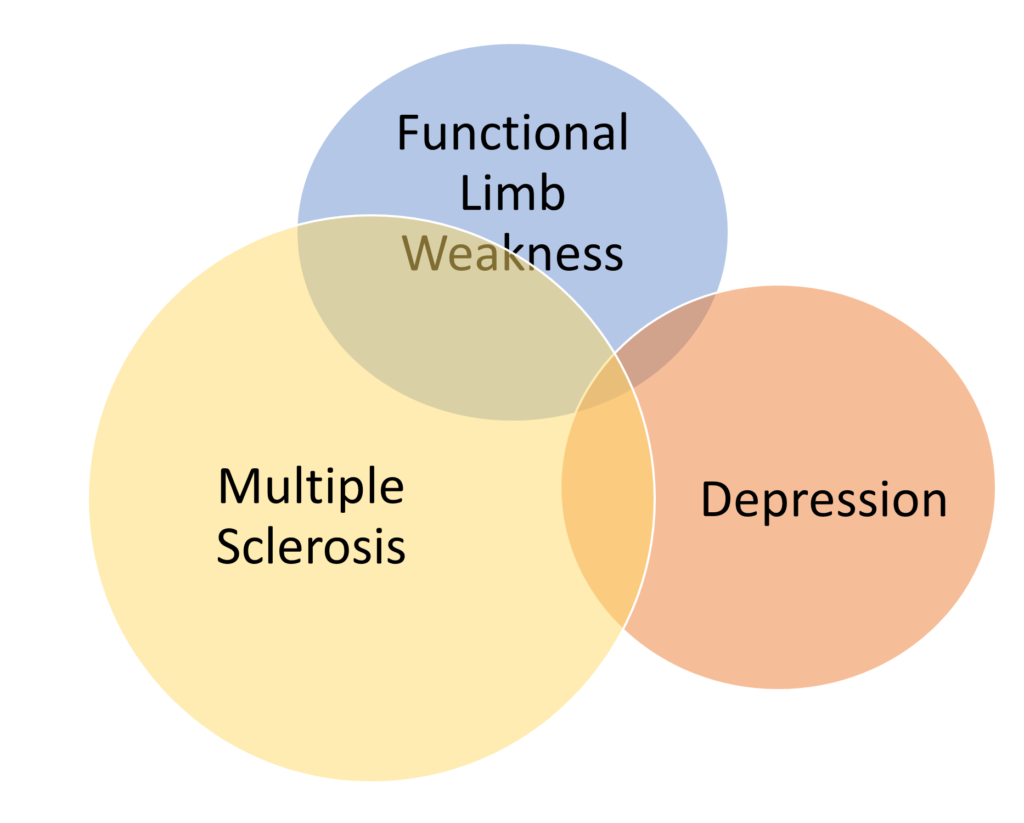For people with FND who have many different symptoms it can be confusing figuring out why they acquire so many different diagnoses from different doctors.
Its common for me to meet someone who has FND (explaining leg weakness or seizures), but who also has other diagnoses like Fibromyalgia (chronic widespread pain) and Irritable Bowel Syndrome.
FND Core symptoms are those that you can see listed under Symptoms>>>FND Core Symptoms on this website. Symptoms like pain, fatigue and bowel problems, that occur in other functional disorders are not strictly FND. Although they are common in people with FND doctors may use different labels for them.
Here are some common Functional Disorders:
What these disorders all have in common is a disorder of nervous system functioning which cannot be controlled by the person who has it.
Many people withese conditions recognise that these different functional disorders link together, when one is bad the other ones can become worse too.
So how does FND relate to other functional disorders? The answer is that these are strongly overlapping conditions. Many people have a ‘Functional Disorder’ which can be seen as ONE condition with different aspects, of which FND may be one.
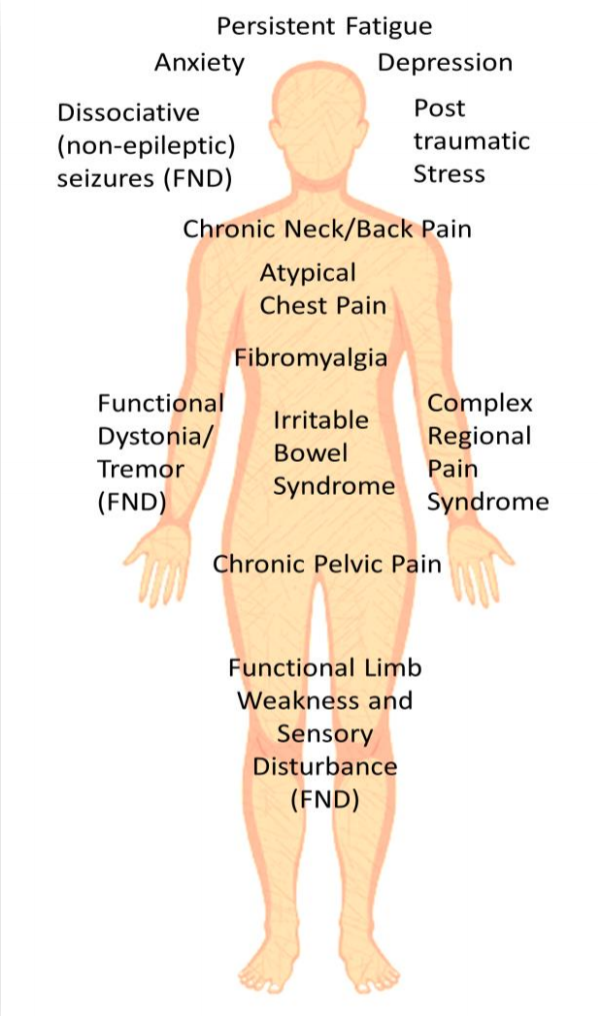
A diagnosis of FND can produce many different feelings and responses. For some people it’s a relief to find out that there is an explanation for what’s wrong, that other people have it and it is REALLY happening.
But for someone who already has other diagnoses like fibromyalgia it can feel like ‘Not another thing that’s wrong with me’.
This is why it’s important to understand that for many people a functional disorder can be seen as ONE condition with different aspects.
As we learn more about the mechanisms of functional disorders, we are discovering that these overlap strongly as well. So, when research studies demonstrate changes in the functional of the brain in people with fibromyalgia, they overlap a lot with changes that we see in the brain in FND and irritable bowel syndrome. There are also some overlaps in the kinds of treatments that have been shown to help such as physical and psychological rehabilitation therapies, and certain types of medication.
In the end everyone is a little different with different overlapping functional disorders and symptoms.
For some people realising that they have a longstanding vulnerability to functional disorders in general, of which FND is one, can make sense of a lot of confusing illness.
Although it can be difficult to realise that the same problem keeps coming back in different ways, in some ways its no different to having other chronic conditions like asthma or diabetes, which people can learn to manage and control better.
It can also bring hope too. If you had a functional disorder in the past, from which you recovered, how did you do that? Are there lessons there for how you might overcome this new functional disorder or your FND?
Here are some examples:
Example 1. This person has an overlap of FND (leg weakness), pain and IBS in fairly equal measure.
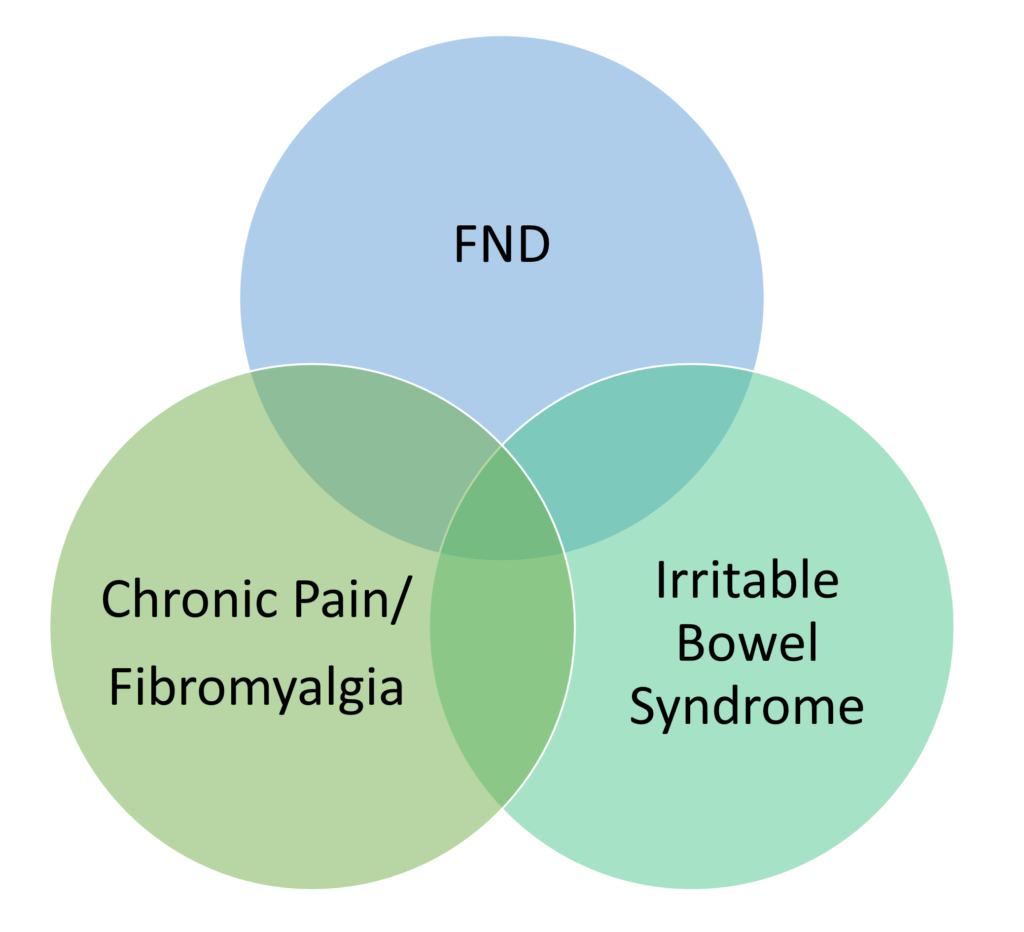
Example 2. This person’s main problem is chronic pain/fibromyalgia. But they also have a slightly weak leg at times and some milder IBS problems. Its still the same overlap but one type of functional disorder is dominating.
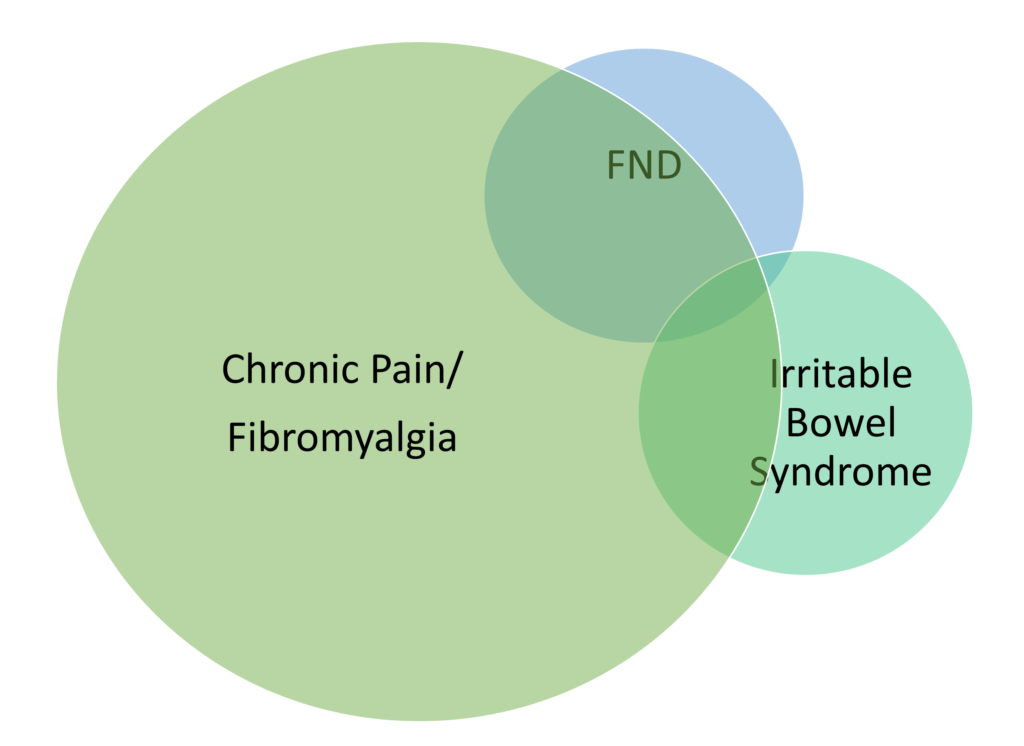
Example 3. This person has many different functional disorders. You may be surprised to see migraine on here. Some doctors would regard this as controversial, but migraine also relates to a disorder of nervous system functioning. I have migraine and I think its one of the functional disorders I have!
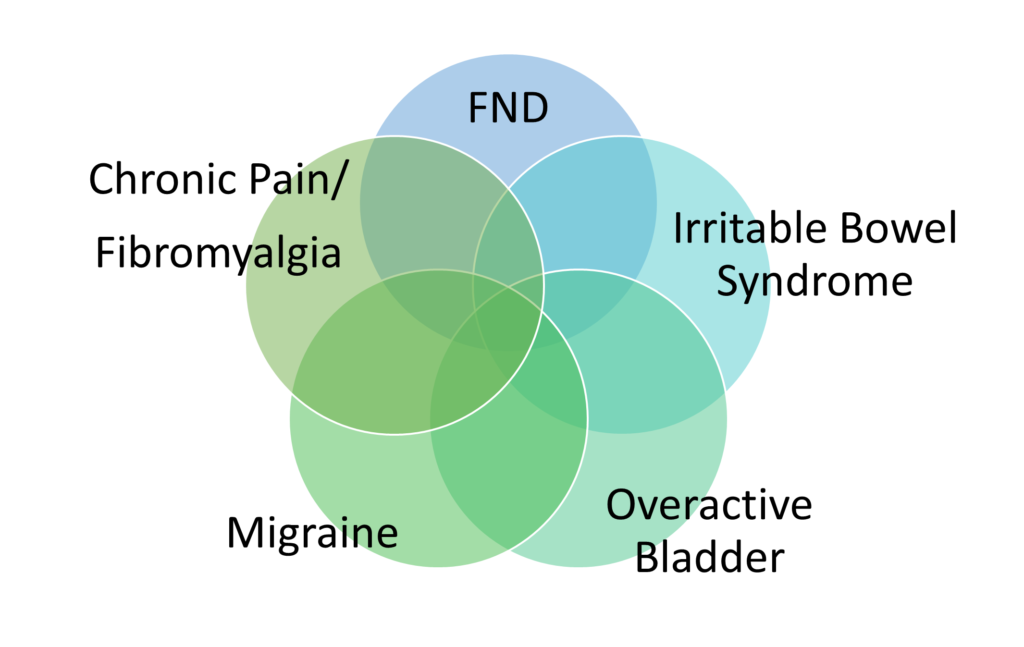
Psychological disorders such as anxiety and depression are common in FND, as indeed they are in almost any condition seen in neurological practice such as epilepsy or multiple sclerosis.
Anxiety and Depression are also defined, not just by psychological symptoms such as constant worry or feeling low most of the time, but also by physical symptoms such as fatigue and sleep disturbance that are seen in FND and most other functional disorders.
You dont need to have a psychological disorder to have FND (as I keep repeating on this site) but if you do, then it can be useful to understand how that is overlapping and interacting with your condition:
Example 4. PPPD, Dissociation and Anxiety. Everyone is different. This person has a mixture of PPPD, Dissociation and Anxiety. You can have PPPD on its own but like most types of FND it commonly occurs along with other problems.
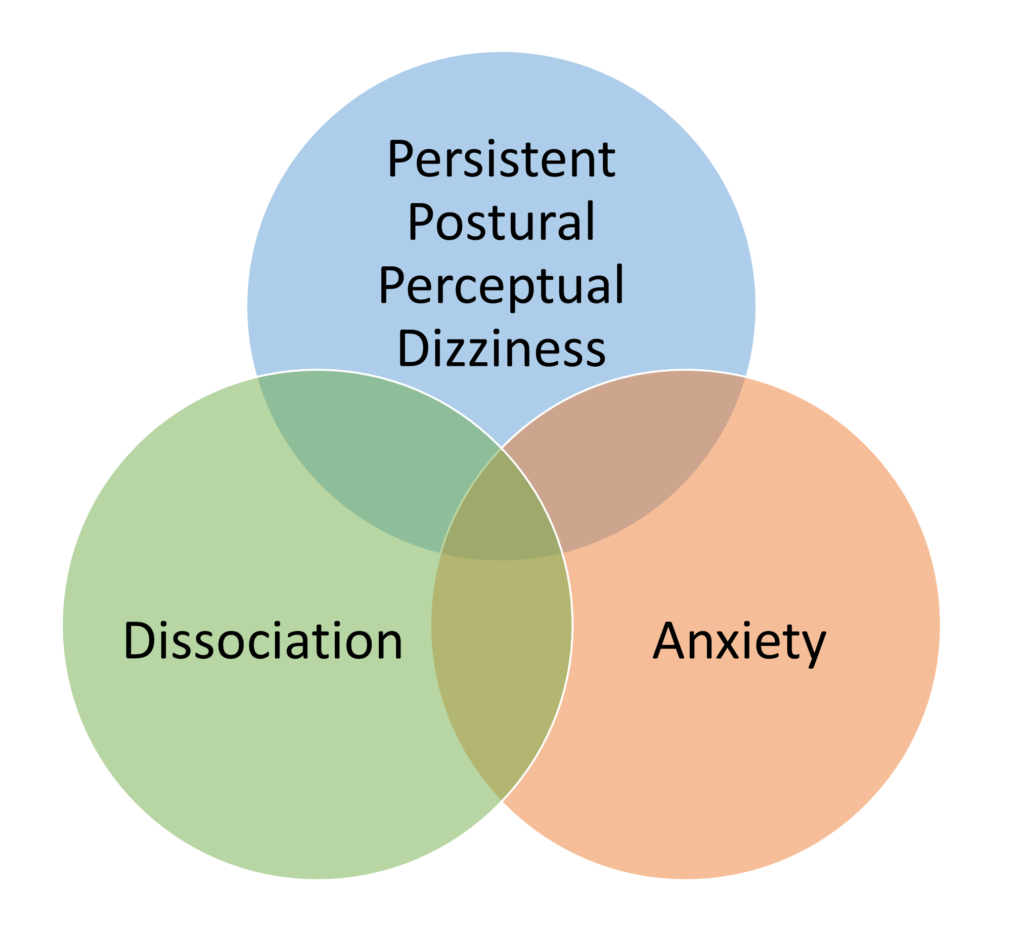
Example 5. Functional Seizures. This person has functional seizures but also chronic pelvic pain that her gynaecologist thinks is related to a functional disorder. They also have post-traumatic stress disorder that is interacting quite strongly with both conditions.
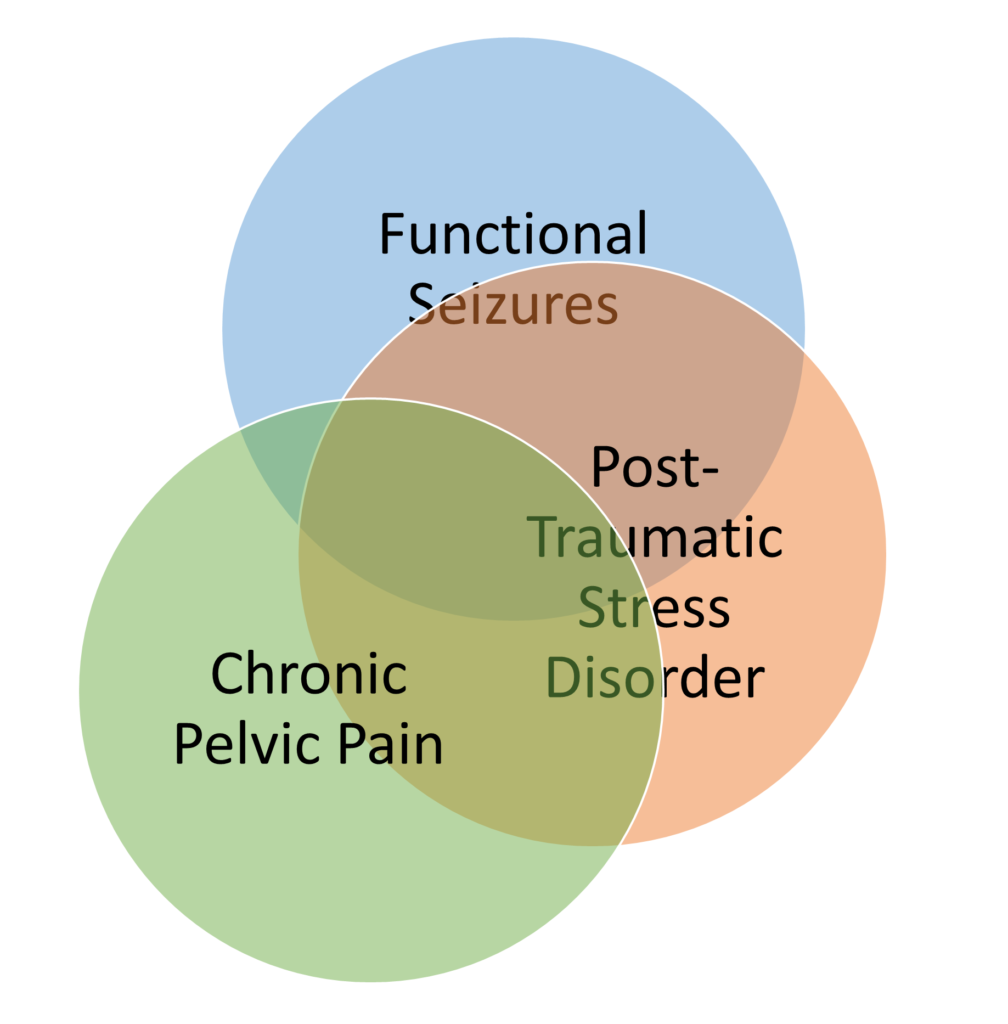
Other neurological and medical conditions are one of the commonest risk factors for FND. I discuss this more on this page. But if we are looking at overlaps then sometimes its important to bring in another medical condition to your understanding. Conditions like arthritis, multiple sclerosis or Ehlers Danlos Syndrome can cause pain and fatigue which could be overlapping with your functional disorder diagnosis and maybe a psychological disorder diagnosis too.
